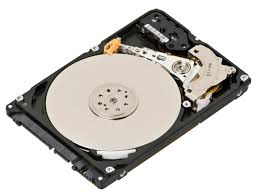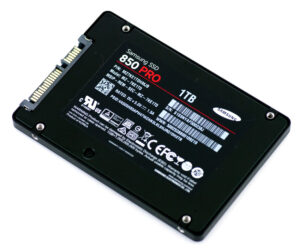Online data consumption has seen a dramatic surge in the past few years. With this growth, data storage technologies have also evolved to provide faster and more efficient solutions. If you’re looking to buy any kind of device; whether it’s a laptop, smartphone, or even servers to host your websites, it’s crucial to assess which storage technology suits you best in order to make a sound choice.
HDD (Hard Disk Drive) and SSD (Solid State Drive) are two of the most popular storage devices nowadays. HDD is more of a traditional storage technology, whereas SSD is relatively new, and is amassing a lot of fan following. This article will discuss SSD Vs HDD in detail, and the advantages of SSD over HDD.
Table of Content:
- What is HDD?
- What is SSD?
- Advantages of SSD over HDD: A Comparison
- Speed
- Cost
- Storage and Capacity
- Durability & Reliability
- Which Should you Choose?
What is HDD?

For the uninitiated; both HDD and SSD are responsible for storing your files, operating systems, applications, and booting your system. HDD or Hard Disk Drive is basically a traditional, spinning hard drive. It contains mechanical components like a platter, read/write head, etc. It uses a rotating disk to read, write, store, and cache information.
The speed of an HDD depends on its RPM or rotations per minute. Typically, the range of these rotations is between 4200 RPM to 7200 RPM. The higher the RPM of an HDD disk, more will be the speed of your device.
What is SSD?

An SSD or Solid State Drive does everything that HDD does functionality wise. SSD stores data in on flash memory chips, in the form of electrical charges. The data is retained even when there is no power present. It does not have any moving parts, which makes it more energy-efficient and less susceptible to wear and tear. This is why SSD is faster than HDD.
In layman terms, you can say that SSD is built to work in a way that it remembers the location of the data whenever it is stored. HDD on the other hand has to first look for the stored data’s location in order to fetch it, which makes it slower and less efficient.
Advantages of SSD over HDD: A Comparison
A lot of people are now preferring SSD over HDD, so in this section we’ll go over the advantages of SSD over HDD by comparing the two on four factors.
1. Speed & Performance
HDD contains a disk coated with magnetic material. When the disk spins, the magnetic head reads and writes the data. The speed of rotation, or RPM, is determinant of the number of times data will be read and written. For example, a SATA III hard drive with 7,200 RPM will process data at the speed of 150 MB/s.
On the other hand, SSD’s technology is completely different from HDD. It doesn’t use rotating disks, instead, it saves data spontaneously in memory chips. All cells can be accessed simultaneously which means data can be processed faster.
The average read and write speed of an SSD with SATA III connection is around 550 MB/s and 520 MB/s, respectively. Some of the SSDs may even deliver a speed of 600MB/s.
A device using SSD for data storage will boot in just a few seconds and perform speedily when multiple applications are running simultaneously. If your laptop launches files faster, doesn’t lag when heavy software is running and retains this performance over time, then it’s because it uses SSD instead of HDD. For servers, this means a faster website even during peak traffic.
2. Cost
SSD offers superior speed and performance,but it’s costlier than HDD. You’ll get more storage space for less amount if you’re going for HDD. Meaning, for a given storage space you’ll have to pay less for HDD and more for SSD, no matter which device you’re buying. However, you can go for low-end SSDs to bridge this price gap.
Read: Data Center Tiers: Classification and which should you choose?
3. Storage and Capacity
If you’re looking for massive storage space then HDD wins hands down. You can find storage space in the range of 40GB to 12 TB in HDD devices. In SSD, higher storage spaces with better interfaces are available, but they won’t be an economical deal. SSD itself is expensive. High-end SSDs with large storage spaces are expensive, and might not fall into the price range you can afford.
4. Durability & Reliability
SSD has less number of write cycles as compared to HDD, so they can wear over time. Meaning, each cell in a flash memory drive can be written to and erased a limited number of times. But due to SSD’s advanced technology, these write cycles are optimized and last for a long time, even if you’re writing 2000 GB worth of data to the drive every year.
HDD doesn’t have any limit to write cycles, but its spinning platter makes it more vulnerable to fragmentation and physical damage. HDD also takes up a lot of power and you might experience your device heating up. For a server and desktop, this could mean a bigger electricity bill.
Since SSD doesn’t have to expend energy on spinning up a drive and the noise produced, it is a more energy-efficient solution. Moreover, its anatomy doesn’t contain any movable parts, which is why it runs a low risk of physical damage.
Which Should You Choose?
As you can see, the advantages of SSD over HDD definitely trump its disadvantages. The only con of using SSD is that it’s not an economical solution; you’ll get less storage capacity compared to HDD in the same amount. And if you want a high capacity like 1 TB then, you’ll have to shell out a large sum. Other than that, SSD shines in every area.
So if your priority is speed, performance, and durability, then SSD is the best choice. However, if you want large storage space and don’t have a big budget, then you can go for HDD.
If you have any queries or feedback, do mention in the comments below!

Divya loves writing and is passionate about marketing. When not trying to hone her skills, you’ll find her either reading or binging on TV shows.

Very good comparison. The way it is explain it can understand by anyone. It is really very informative. Thanks
The biggest advantage of SSD over HDD is speed. If you are one who always admires to have faster data transfer read/write speed then SSD for you and this is the #1 advantage of SSD.
Pretty nice post. I just stumbled upon your blog and wished to say that I have really enjoyed browsing your blog posts. After all I will be subscribing to your rss feed and I hope you write again very soon!
Interesting information provided about SSD vs HDD, have send your url to a few others
Thanks for writing this beautiful article I enjoyed reading this article, I think I may need to install a new SSD to increase the speed of my computer.
Hard Disk Drive (HDD) is a non-volatile storage device which uses a set of platter disks and read/write head for storing data. Unlike a SSD where it relies completely upon flash memory chips, a HDD is composed of mechanical parts.